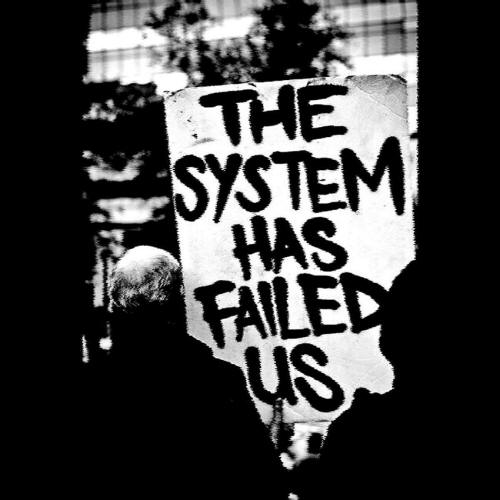|
Whoa... I'm not any of these things, capitalist, socialist, atheist, any-ist...
I believe in three things only, disco, chocolate, and true love, and they're all the same thing, really. My only role and goal when it comes to the world is to observe.
And here's what I see.
The genuine opposite (or maybe endpoint, if you want to think dynamically, not statically) of both pure capitalism and socialism are,
...what results when political economies are run by and for tiny elites.
We'll come back to
that...
Two mighty kingdoms - one single lesson:
Cutthroat competition in every aspect of life soon becomes abuse. Enforced cooperation soon becomes unendurable.
So what now? Well, surely
not choosing sides in this textbook false dichotomy - which
unfortunately is what many still hope to do - but transcending it.
The global economy of this century must and will be built on new synthesis:
We see this already at
work in the world's most successful societies, like Scandinavia or
Canada.
Capitalism is very, very good at providing people things like iPhones and craptastic summer blockbusters and dating apps and edible deodorant and designer diapers and reality TV.
You might call them idle pleasures. Which I might not like, but the average person certainly does. And that's fine. If they have the basics of a genuinely good life first.
What are those basics?
The American right and left love to pretend as if there's some kind of great debate, mystery, about it. There's not.
Aristotle, the Buddha, and Jesus all spelled it out millennia ago:
Today we might update that list with things that didn't exist in their time, but are clearly in the same spirit:
If you think about it, no
matter how much money you have, you can't really buy such things
unless a society has invested in them first.
Through them, everyone can be happy, and grow into their potential - without them, no one can be, no matter what your latest self-help bestseller says.
Without a few meals a day, a little bit of money in the bank, and your health, no amount of positive thinking can get you to happiness - nor should it. Human beings are not all born to be monks - they are born to dare, risk, defy, rebel, imagine, create. And to do all that, they need the basics.
Without the basics,
democracy can't survive, society can't cohere, people can't
flourish, and lives can't be fully lived.
Where do we see it happening? As I said, all over core Europe and Canada of course. There, capitalism and socialism are being mixed together in sophisticated and bold ways.
Those societies are prospering because they are getting the formula of human possibility right:
Where don't we see it happening?
Well, ironically, or maybe logically, in the two fallen empires of the past. America still clings to extreme capitalism, which has devolved into oligarchy - just as it has in Russia.
Here, people have idle
pleasures but not the basics - and for the simple reason that you
can't eat your iPhone, or educate your kids with Uber's nonexistent
benefits package, middle classes are choosing demagogues to topple
the elites who have failed to provide working social contracts.
Choose your apocalypse.
These are the stakes of this troubled age.
The opposite of capitalism and socialism is oligarchy. And the new synthesis beyond oligarchy is social capitalism, or capital socialism.
Whatever we call it, it is a system in which people are freer. Yes, really.
In America, ironically, "freedom" has devolved to,
In Soviet Russia, it devolved into much the same, by way of what was hoped to be the precise opposite:
But the point of
synthesizing human organization beyond capitalism is that human
beings no longer have to submit to those foolish non-choices,
demands, little tyrannies.
Fealty to one thing and one thing only. That kind of a society then requires coercion, punishment, discipline - after all, what kind of a person would put an abstract ideal above his own children's full bellies? Only an extremist...
It cannot end up a free, thriving, and healthy place. Human life is richer than that.
And so to develop truly wealthy societies, we are learning today, that there is no one true way - or, if you like, that the one true way is that there are many things human lives need before abstract noble ideals, which count for nothing if one's life is falling apart.
Instead of puritanical
ideals, there are many fundamental goods that societies must put
first. Then democracy endures, freedom expands, and society itself
matures.
|


